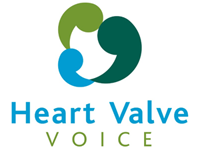Heart Valve Disease
QUICK LINKS
Rehab – Your Recovery Pathway
You can help yourself by practicing habits for positive emotional health. Setting yourself goals and realistic expectations can help keep you motivated. Celebrating progress, no matter how small, is also important. It may be tempting to run before you can walk, but remember to not push yourself too hard.
Our resources page is filled with useful information and checklists to help you plan for your treatment and recover pathway. Below are a few simple suggestions of how you can prepare for the aftercare process.
Plan your recovery and set positive goals
Often, before treatment, your mind will be anxious and pre-occupied with thoughts of the actual procedure. It is essential that you look beyond this, and plan for your recovery. Speak with your family, and explain what activities you might need help with. You might like to arrange for a friend or family member who lives a distance away to come and see you 6 or 7 weeks after your surgery. This will be an incentive and something to look forward to post-treatment.
Move into a routine
One of the most reliable ways to keep your mood stable is to get moving. Exercise whenever your healthcare provider says you can, even if you start out just shuffling down the hospital corridor. After surgery, you don’t want to overdo it, but encouraging yourself to keep moving at a slow and steady rate will help you recover the right way. Many people find that keeping some sort of routine is very helpful for staying positive during recovery, too. Routines can include whatever keeps your spirits up, provided you have your healthcare providers’ okay!
Manage your expectations and celebrate your small milestones
Learn the facts before you have your procedure so that you’ll know what to expect when thinking about your progress. The more you celebrate your small victories each day, the more positive you will likely feel about your progress.
Keep track and weigh yourself every day
Expect a little weight loss for about 3 weeks. If you gain more than 5 pounds, mention this to your doctor. You may be retaining fluid, which can be dangerous.
Tips for family, friends and carers
The more you celebrate their small victories each day and notice the moments of progress, the more positive they will likely feel about their recovery.
Heart Valve Disease
QUICK LINKS
Patient Story: Margaret
“The cardiac nurses had advised me of activities that I should and shouldn’t do, so I closely followed their advice. After this initial rest, I had 14 weeks of rehabilitation which was provided by the NHS at Bolton Royal. This really made me feel better, and gave me the chance to learn the exercises for my daily routine in a safe way with a specialist. I was able to return to work after six weeks.”

Read Margaret’s story in full…



